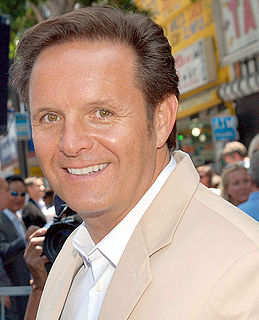A Quote by Daniel Dennett
I listen to all these complaints about rudeness and intemperateness, and the opinion that I come to is that there is no polite way of asking somebody: have you considered the possibility that your entire life has been devoted to a delusion? But that’s a good question to ask. Of course we should ask that question and of course it’s going to offend people. Tough.
Related Quotes
And one day we must ask the question, "Why are there forty million poor people in America?" And when you begin to ask that question, you are raising questions about the economic system, about a broader distribution of wealth. When you ask that question, you begin to question the capitalistic economy.
Because I would never work for a niche publication or a niche program on television and because I am a journalist and not an opinion person, my job is to try to see how many different points of view I can represent or how. It's not even a question of who you don't offend because you are always going to offend somebody. The question is how can you get people to listen to the information you have to present.
It's the most annoying question and they just can't help asking you. You'll be asked it at family gatherings, weddings, and on first dates. And you'll ask yourself far too often. It's the question that has no good answer. It's the question that when people stop asking it, you'll feel even worse. - WHY ARE YOU SINGLE?
If you don't understand, ask questions. If you're uncomfortable about asking questions, say you are uncomfortable about asking questions and then ask anyway. It's easy to tell when a question is coming from a good place. Then listen some more. Sometimes people just want to feel heard. Here's to possibilities of friendship and connection and understanding.
Of course, to avoid getting stuck in that convo with someone you dislike or feel uncomfortable around, don't be passive, be proactive. Do not let them direct your interaction on their terms, do it on yours. Ask a Misdirection Question--something too difficult to answer quickly--e.g., 'What's Congress up to?' or 'You ever learn any cool science?' When you ask the question, don't make eye contact, keep moving and get out of there. Do not wait for a response and deny ever asking it. Repeat these actions until you are never again spoken to by that individual (about four times).
I don't think we should just 'muddle through' and ignore the question of life's meaning. Or better, perhaps, I don't think it is a question that can be ignored once the business of asking about the worth and significance of what one is doing - one's work, one's pleasures, one's ambitions and so on - has got going. You can't at any point stop the urge to ask Tolstoy's questions, '... and then what?', 'What's the point of that?'.
When you go to a voice-based interaction, you can't tell people, 'Ask me this question and structure it in this way.' And if they ask a question, and you have a bad answer, first time, maybe they'll be okay with it. Third time, they're going to say, 'This is a complete waste of time. I'm going away.'
I think success is about purpose. People ask about success at different points in your life. As I look back, I think people that are successful feel good about what they are doing, and they can look back at what they've done and they feel good about it. People sometimes ask about success and they say, "What's your legacy?" and I say, "I think it's really a dumb question." I think the question is: What am I doing now? Do I feel good about myself? Am I proud of myself? Whatever purpose there is in life, I think success is about purpose. It's not about material things.









































